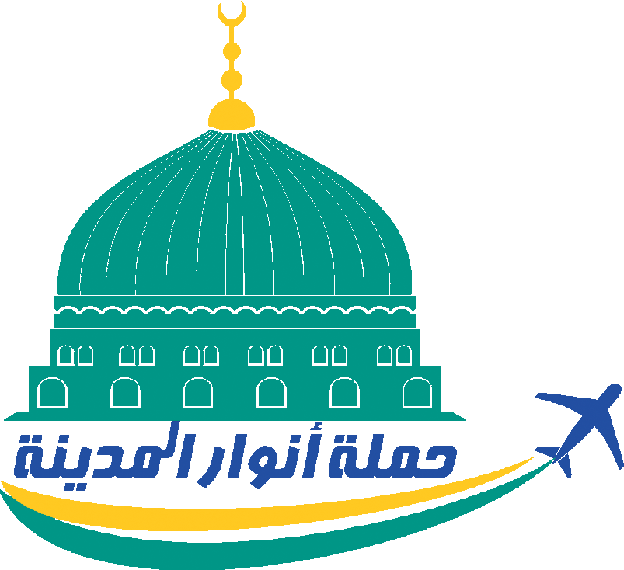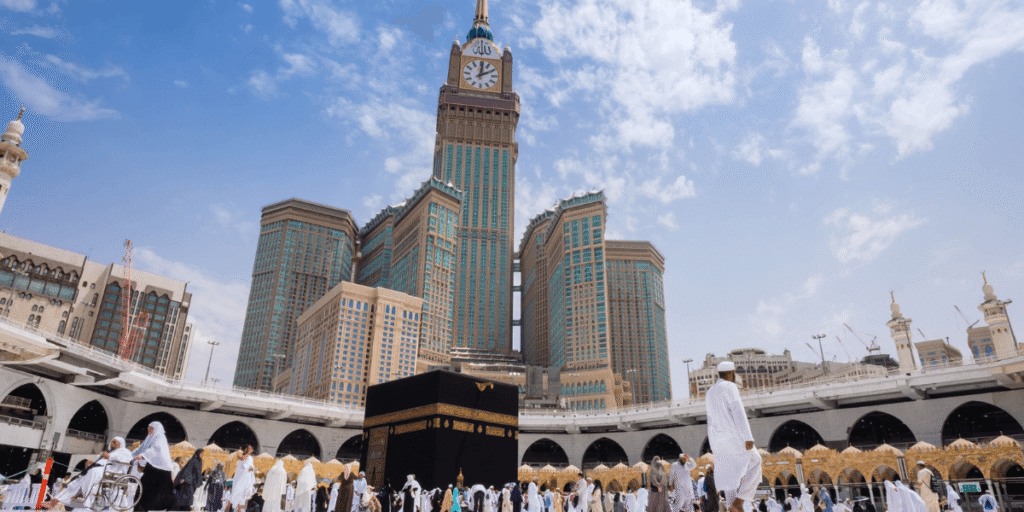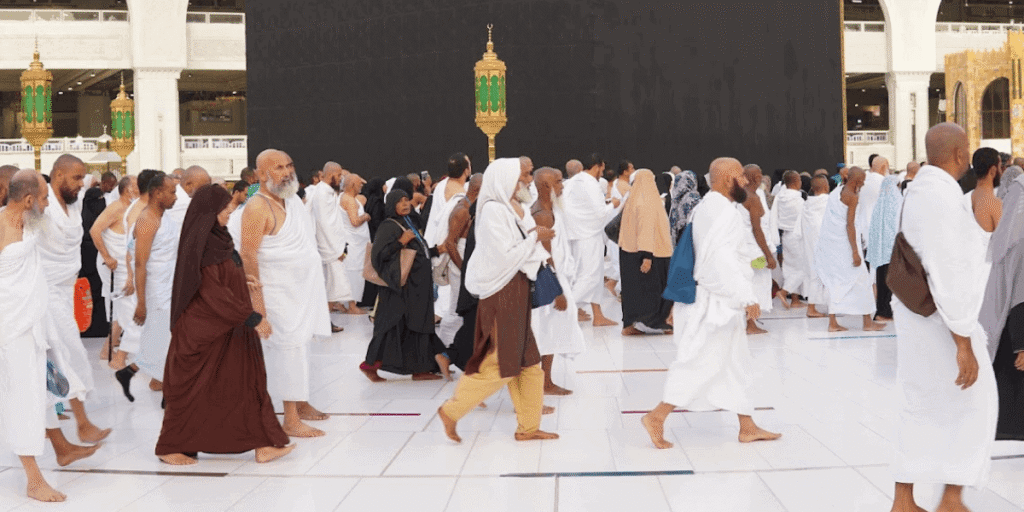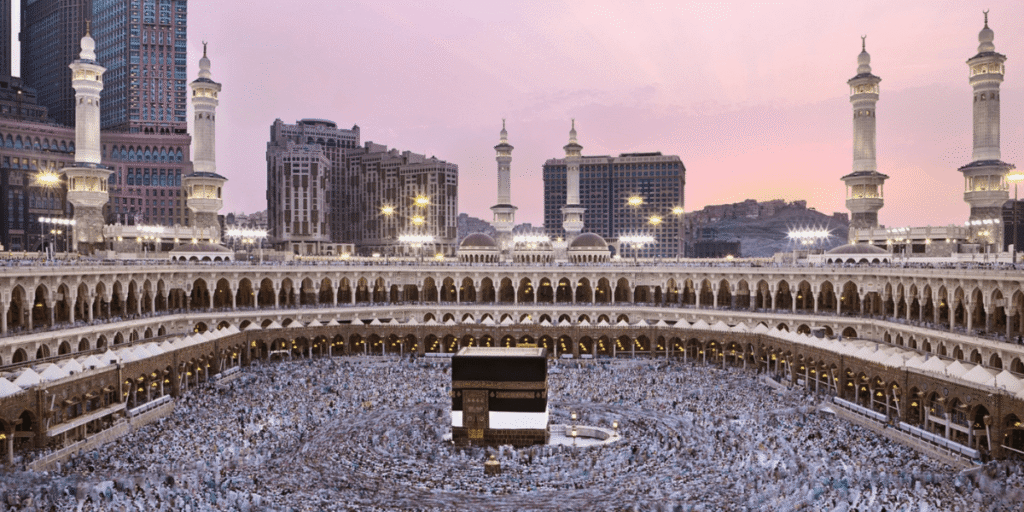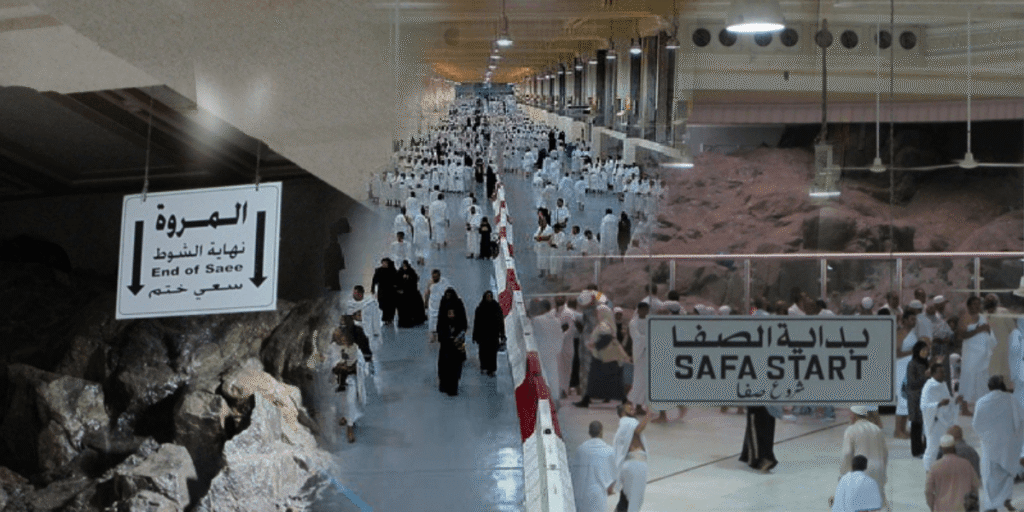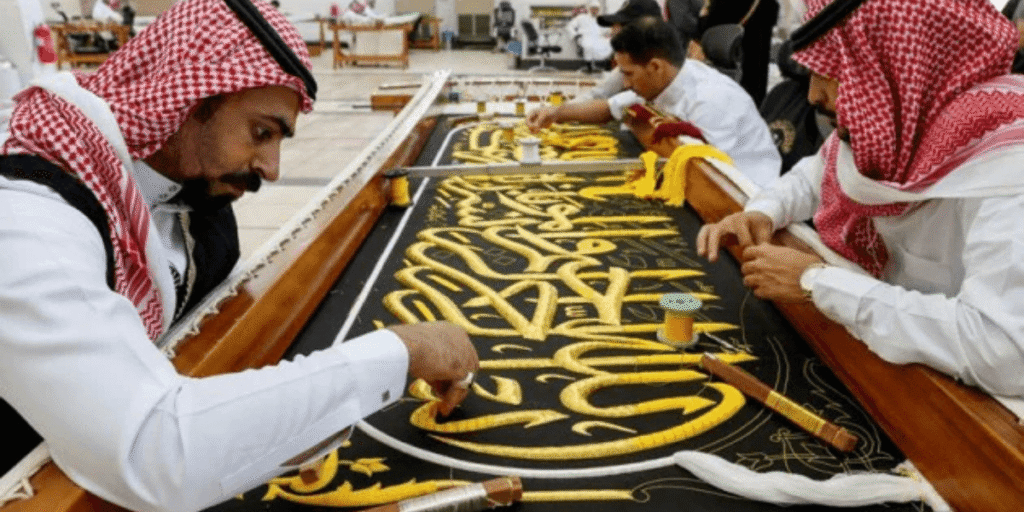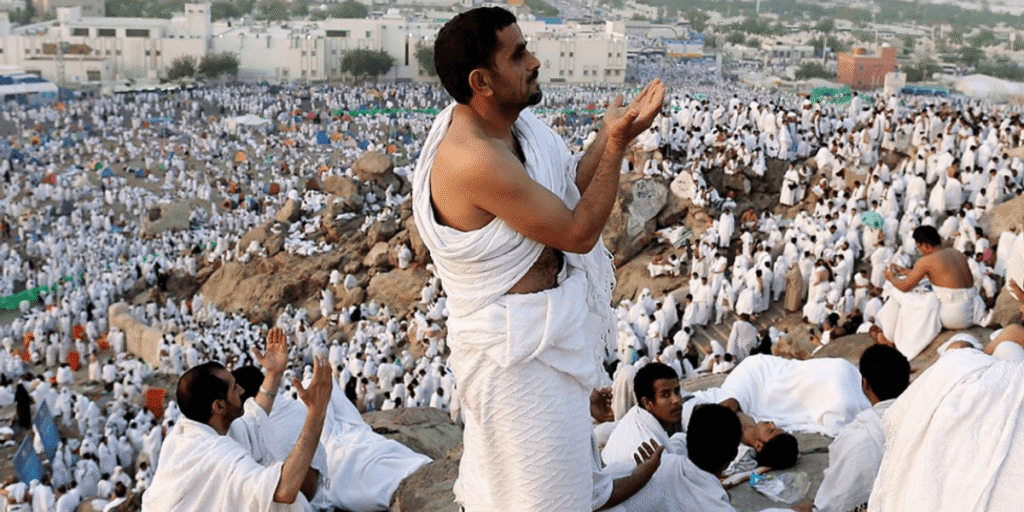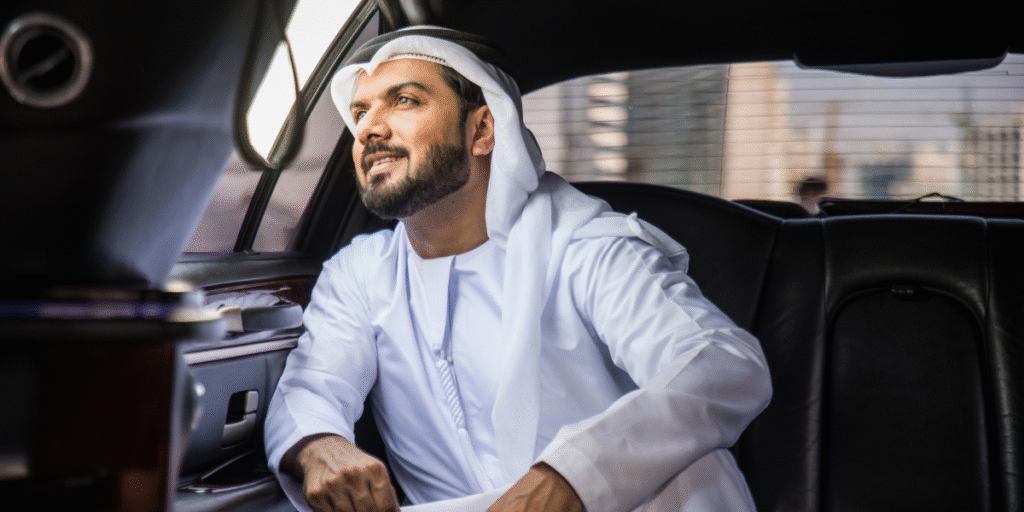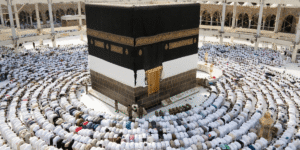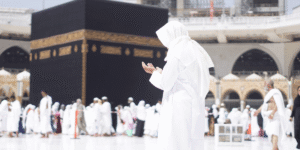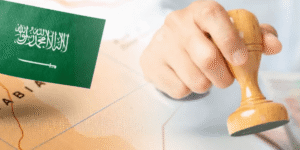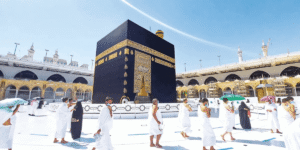Embarking on the Hajj pilgrimage is a life-changing spiritual journey. For pilgrims traveling from the UAE and beyond, being fully prepared before arriving in Makkah is essential for a smooth, stress-free experience. From accommodation arrangements and transport coordination to understanding what to pack for Hajj, every aspect matters.
This blog brings you practical insights to help you plan your stay in Makkah efficiently. Discover crucial packing advice, local tips, and important reminders for a blessed and comfortable Hajj experience.
Knowing the Best Time to Arrive in Makkah
Arriving early in Makkah allows pilgrims to settle in, adjust to the climate, and prepare mentally for the sacred rituals. Aim to arrive at least 2-3 days before the official Hajj rites begin. This helps in managing fatigue after travel and provides time for spiritual preparation. Your Hajj journey begins long before the first Tawaf; early arrival eases the transition into this profound chapter. Pilgrims can also explore nearby Islamic landmarks, adding depth to their pilgrimage experience.
Ideal Places to Stay Near Masjid Al-Haram
Choose accommodations that are close to Masjid al-Haram for ease of access during peak prayer times. Staying nearby saves walking time and energy, especially during the summer heat. Look for hotels offering group services, dining, and 24/7 transport. Booking in advance with a trusted Umrah and Hajj travel agency in Dubai, like Three N Travel & Tourism LLC, ensures convenience and safety. Many pilgrims prefer staying in Ajyad, Aziziyah, or near Ibrahim al-Khalil Road for their proximity and comfort during the long Hajj days.
The Essentials: What to Pack for Hajj?
One of the most common questions pilgrims ask is what to pack for the Hajj. Focus on simplicity and functionality. Your Hajj bag should include Ihram garments, unscented hygiene products, a prayer mat, comfortable footwear, a refillable water bottle, and any essential medication. Documents like passport copies, Hajj permits, and emergency contact info must be readily accessible. Avoid overpacking. The goal is ease and movement; every item should serve a clear purpose. A compact, organized bag will make your pilgrimage more manageable.
Comfort Matters: Clothing Tips for Makkah Weather
The desert climate of Makkah during Hajj is intense, with soaring daytime temperatures. Choose breathable, loose-fitting cotton garments. For men, the Ihram must be worn during specific rites, but additional lightweight outfits help with day-to-day wear. Women should carry modest, airy abayas and light scarves. Sun hats, UV umbrellas, and sunglasses offer essential protection. Comfort is key, especially when walking long distances between rituals. Well-thought clothing ensures your energy remains focused on worship, not weather discomfort.
Hajj Packing List for Medical and Health Needs
A personalized Hajj packing list must include a health kit. Pack pain relievers, band-aids, antiseptic wipes, sunblock, rehydration salts, and any prescribed medications. Pilgrims with chronic illnesses should keep a doctor’s letter detailing their condition. Small items like eye drops, lip balm, and travel tissues become essentials in the dry Makkah air. Staying healthy allows you to perform Hajj rites without interruptions. Prepare your kit before departure; finding medications locally may be challenging during crowded days.
Hygiene Essentials for A Clean Pilgrimage
Maintaining cleanliness is a vital part of Islamic practice, especially during Hajj. Use fragrance-free soaps, shampoos, and wet wipes. Carry a compact towel, hand sanitizer, and nail clippers. Avoid sharing personal items and always dispose of waste properly. Hygiene during Hajj isn’t just about comfort; it preserves your spiritual purity and protects other pilgrims. A toiletry bag with organized compartments keeps everything accessible and contained throughout the journey.
Technology to Take Along On Your Hajj Journey
While spiritual focus is the goal, a few gadgets can enhance your trip. Power banks, universal adapters, and a lightweight flashlight are practical additions. Download offline Qur’an apps, Duas, and a digital map of Makkah. Keeping a smartphone with you helps in navigation, communication, and coordination within your group. Label chargers and use protective cases to prevent loss. Use technology mindfully; it’s a tool for convenience, not distraction.
Staying Connected with Your Group
During Hajj, staying in contact with your group leader and fellow pilgrims is critical. Crowds can cause temporary separation. Set meeting points and share local SIM numbers. Simple walkie-talkies work well for groups. Use apps like WhatsApp for regular updates. Always inform someone of your location before moving independently. Strong communication reduces stress and enhances your overall safety and coordination during key rituals like Tawaf and Sa’ee.
Best Practices for Footwear During Hajj
Choose shoes designed for long walks and extreme temperatures. Footwear should be durable, breathable, and easy to slip on and off. Flip-flops or sandals without stitching are preferred for Ihram-wearing men. Women can wear padded walking sandals. Keep a small plastic bag to carry shoes when entering prayer areas. Avoid brand-new shoes; they cause blisters. Well-worn, comfortable footwear helps prevent injuries and fatigue, especially when walking between Mina, Muzdalifah, and Arafat.
Keeping Documents Safe and Accessible
Carrying documents securely is vital. Use a neck pouch or waist bag for your passport, ID, Hajj permit, and hotel access card. Make digital and paper copies of key documents. Write down emergency contacts and hotel details in both English and Arabic. Avoid keeping valuables in backpacks that are left unattended. Your identity documents are as important as your spiritual goals; keep them safe and accessible at all times.
Tips for Navigating Masjid Al-Haram
Masjid al-Haram is vast and crowded, especially during Hajj. Use specific gates as landmarks and memorize your prayer spot. Arrive early for prayers and rituals. Avoid peak congestion times unless performing mandatory rites. Respect designated walking lanes, especially during Tawaf. Patience, awareness, and consideration for others ensure a smoother experience. Follow signs, listen to volunteers, and never rush. The key is presence; being mindful of every step in this sacred space.
Spiritual Preparation Before Hajj
Spiritual readiness complements physical preparation. Begin by reading about the significance of each rite. Make Duas in advance, reflect on your intentions, and seek forgiveness. Carry a pocket Qur’an or Du’a book. Practicing patience, kindness, and humility enhances the spiritual outcome. Hajj is more than rituals—it’s a journey of the heart. Arriving in Makkah with spiritual clarity deepens your connection with Allah and transforms the entire experience.
Staying Healthy During Your Stay
Hydration is crucial in the Makkah heat. Drink Zamzam water frequently and carry electrolyte sachets. Eat light, nutritious meals and avoid street food. Wear a face mask in crowded places and practice regular handwashing. Follow your sleep schedule and take short breaks when needed. Health is your foundation during Hajj, respect it. When well-rested and nourished, you’ll be physically capable of fulfilling every ritual with focus and devotion.
Travel Tips for Smooth Movement
Hajj travel tips often include advice on managing transportation between sacred sites. Use official buses and always travel with your group. Label your bags clearly and pack a day bag for each transition. Learn basic Arabic phrases or carry a translation card. Keep a daily checklist of rituals and locations. Trust your travel leader for logistics. Three N Travel & Tourism LLC handles these movements seamlessly, allowing you to focus solely on worship.
Organize Your Day with A Simple Schedule
Planning your day around the Hajj rites, prayer times, and rest periods makes a big difference. Begin your day early, attend prayers in the Haram, and rest during peak heat. Break your day into spiritual blocks: prayer, reflection, and rituals. Allocate time for journaling or Du’a. Avoid overcommitting or rushing between activities. A flexible yet mindful schedule keeps you grounded and energized throughout your pilgrimage.
What Should Be Included in a Basic Hajj Packing List?
A basic Hajj packing list should include Ihram clothing, unscented toiletries, a reusable water bottle, a prayer mat, comfortable footwear, essential medications, and copies of important documents. Also, carry a small backpack, a power bank, and basic first-aid items. Keep the list simple and focused on necessity, allowing for easy mobility and comfort throughout the journey.
Are There Any Specific Hajj Travel Tips for First-Time Pilgrims?
Yes. Among the best travel tips for first-timers are: stay with your group, keep hydrated, follow a daily schedule, label your belongings, and learn the basic Arabic terms used during rituals. Relying on a trusted travel agency helps ease anxiety. Mentally and spiritually prepare before departure for a smoother experience in Makkah.
Final Thoughts on Choosing the Right Hajj Package
Selecting the right Hajj packages makes all the difference in your pilgrimage experience. Packages vary in terms of hotel class, proximity, transport, and guided support. Choose one based on your physical needs and desired level of comfort. Three N Travel & Tourism LLC provides organized group tours, spiritual guidance, and emergency support, ensuring a peaceful and enriching Hajj. Packages often include preparatory sessions, making your journey more informed and spiritually aligned.

